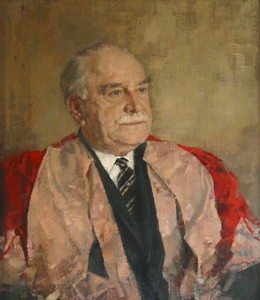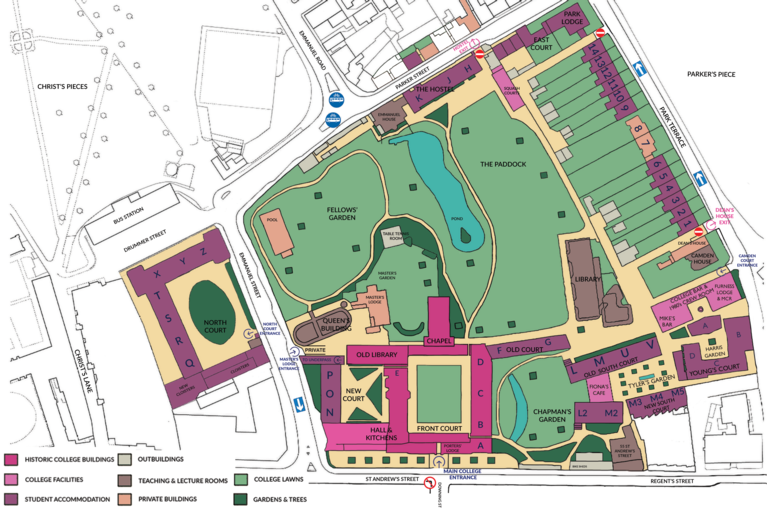Ronald George Wreyford Norrish (1897 - 1978)

Fellow of the College who won the Nobel Prize for Chemistry (with George Porter) in 1967
It was during the second year of the First World War that R. G. W. Norrish won an entrance scholarship to Emmanuel, from the Perse School. His coming up was thus delayed till 1919; but the interruption to his studies of service in France with the Royal Artillery and six months as a prisoner of war in Germany did not prevent his taking a double first in Natural Sciences. He began research in 1921 under E. K. Rideal, and soon became (as he remained) a pioneer in photochemistry. His other abiding scientific interest was in the mechanism of chain reactions such as combustion and the formation of plastics. He was an unusually skilled experimenter who always eschewed elaborate theoretical interpretations of his results; and this ensured that his papers (numbering over two hundred) have stood the test of time.
Norrish was elected a Research Fellow of Emmanuel in 1925; he was appointed a University lecturer in 1926, and Professor of Physical Chemistry in 1937. During the Second World War he turned his knowledge of chain reactions to problems such as the suppression of gun-flash, and fire hazards to balloons. Wartime technological advances in turn assisted his subsequent work on flash photolysis, for which he and another Fellow of Emmanuel, George Porter, were awarded the Nobel Prize in 1967.
The post-war years in Cambridge saw steady growth, under Norrish's guidance, in the size of the physical chemistry department, culminating in the move from Free School Lane (where its cramped quarters surrounded the former Perse School hall) to fine new laboratories in Lensfield Road, where spacious accommodation for the science was matched by that for the Professor.
Norrish was a man of immense energy, who worked hard and relaxed hard and expected other people to do the same. He enjoyed meeting people from other countries and walks of life, and this temperament found full play both in the extensive travels for which his scientific reputation gave him opportunities, and in the reciprocal entertainment of visitors to Cambridge - entertainment always warm and memorable, if sometimes overwhelming. He lived for much of his life in Park Terrace, adjacent to the grounds of the College, to which his lifelong devotion was marked by two characteristic bequests - one for the College library, the other for the purchase of silver wine-stoups and for gratuities for the College staff.

